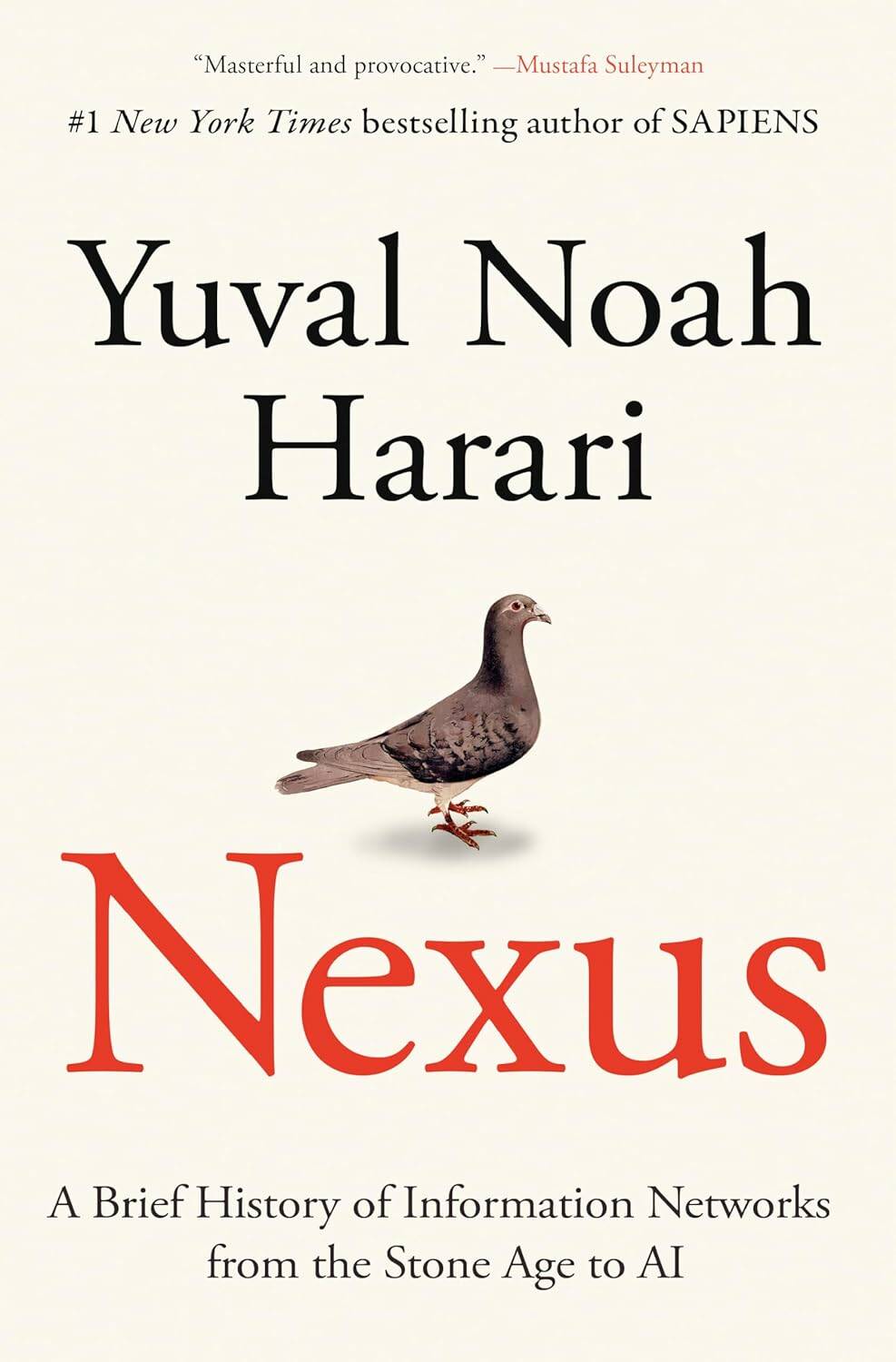Information overload
Crucial connections, AI set to alter civilization in ways we can’t predict
Advertisement
Read this article for free:
or
Already have an account? Log in here »
To continue reading, please subscribe:
Monthly Digital Subscription
$0 for the first 4 weeks*
- Enjoy unlimited reading on winnipegfreepress.com
- Read the E-Edition, our digital replica newspaper
- Access News Break, our award-winning app
- Play interactive puzzles
*No charge for 4 weeks then price increases to the regular rate of $19.00 plus GST every four weeks. Offer available to new and qualified returning subscribers only. Cancel any time.
Monthly Digital Subscription
$4.75/week*
- Enjoy unlimited reading on winnipegfreepress.com
- Read the E-Edition, our digital replica newspaper
- Access News Break, our award-winning app
- Play interactive puzzles
*Billed as $19 plus GST every four weeks. Cancel any time.
To continue reading, please subscribe:
Add Free Press access to your Brandon Sun subscription for only an additional
$1 for the first 4 weeks*
*Your next subscription payment will increase by $1.00 and you will be charged $16.99 plus GST for four weeks. After four weeks, your payment will increase to $23.99 plus GST every four weeks.
Read unlimited articles for free today:
or
Already have an account? Log in here »
Hey there, time traveller!
This article was published 14/09/2024 (433 days ago), so information in it may no longer be current.
You don’t get to be one of the world’s leading public intellectuals without anticipating a trend or two.
Israeli pop historian Yuval Noah Harari jumped on the artificial intelligence (AI) bandwagon in his 2016 book Homo Deus, the follow-up to his breakthrough bestseller Sapiens in 2014.
Now in Nexus, his biggest and most demanding book to date, Harari commits whole hog to the AI discussion, arguing that this latest “information network” will alter human civilization in ways we cannot predict.

Supplied photo
Yuval Noah Harari posits that artificial intelligence (AI) may be ‘potentially more momentous than the invention of the telegraph, the printing press, or even writing.’
“AI isn’t progressing towards human-level intelligence,” he notes. “It is evolving an entirely different type of intelligence.”
Harari prefers to label AI “inorganic alien intelligence.” As he argued in Homo Deus, no correlation necessarily exists between consciousness and intelligence.
“Intelligence is the ability to attain goals,” he writes. “Consciousness is the ability to experience subjective feelings like pain, pleasure, love, and hate.”
Computer programs cannot do the latter (yet!), he notes, but they are brilliant at the former.
Harari, 48, is himself a brilliant synthesizer of others’ ideas. He is a historian by academic discipline, not a computer scientist or a so-called futurist.
His books contains no original research. You need only to flip through the citations in the nearly 70 pages of end notes in Nexus to get a sense of the hundreds of writers and thinkers from whom he has borrowed.
A dictionary definition of “nexus,” by the way, is “a connection or series of connections linking two or more things.”
He devotes the first half of his book to outlining the history of how our species has progressed in making connections, from exchanging stories around campfires to promulgating religions to building mass media.
Much of this will be familiar to readers of Sapiens, a vastly entertaining book that has become the foundation of Harari’s brainy reputation.
“Humankind gains enormous power by building large networks of co-operation, but the way these networks are built predisposes them to use power unwisely,” he writes.
“Our problem, then, is a network problem.”
The accepted wisdom among the liberal elites is that information is good, and the more of it the better. But Harari argues that this is a naive view: more information leads to confusion and disinformation as often as it leads to truth.
But do not mistake Harari for some sort of authoritarian populist. He prefers information networks that have “self-correcting mechanisms” over those that don’t.
Thus democratic political systems work better than totalitarian ones, which are headed by “infallible” leaders who can’t be questioned.

Nexus
And, for the same reasons of self-correction, science trumps religion. “Historically, the most important function of religion as been to provide superhuman legitimacy for the social order,” he writes.
“Prophets and theologians have repeatedly summoned powerful spirits that were supposed to bring love and joy but ended up flooding the world with blood.”
In the second half of Nexus Harari discusses how the new information networks made possible by computers might change the world for good or ill.
“The invention of AI is potentially more momentous than the invention of the telegraph, the printing press, or even writing,” he argues, “because AI is the first tool that is capable of making decisions and generating ideas by itself.”
In between his philosophizing, Harari includes dozens of historical anecdotes to illustrate his points.
He describes the process by which the various elements of the Christian bible were canonized hundreds of years after Jesus’ death.
He relates the history of the murderous repression of witches in 17th-century Germany, of the Kulaks in the early decades of the Soviet Union, of Rohingya Muslims in 21st-century Myanmar.
Besides his erudition on innumerable historical topics, it needs to be noted, Harari writes clear and witty sentences.
A reader might think his books are translated from Hebrew, but in fact he now writes in English.
Granted, he has access to the top editors in the Penguin Random House empire, but he still outperforms many native English non-fiction authors in this regard.
Morley Walker is a retired Free Press editor and writer.


